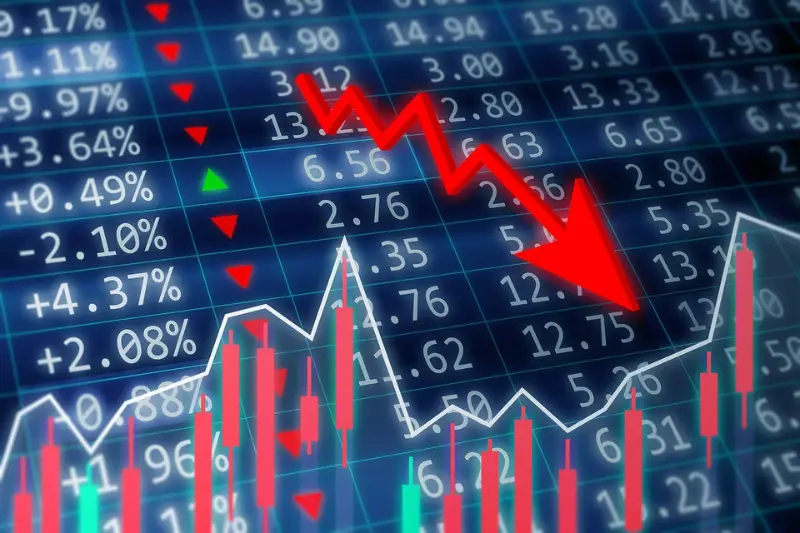The stock market is one of the most fast-moving and unpredictable financial systems in the world. Prices of shares can rise and fall within seconds, investor moods can shift quickly, and global events can change the market outlook overnight. For this reason, stock market updates play a critical role in helping investors, traders, and businesses stay informed and make the right decisions. By following the right type of updates, one can avoid losses, find opportunities, and understand market trends more effectively. In this article, we will explore in detail the different types of stock market updates, why they matter, and how investors can use them for smart financial decisions.
Why Stock Market Updates Matter

Stock market updates are not just about numbers. They reflect the heartbeat of the global economy. Every update tells a story about how companies are performing, how investors are reacting, and how external events like government decisions, interest rates, or global crises are impacting the financial world. For traders, updates provide real-time signals to buy or sell. For long-term investors, updates offer insight into overall growth and risks. Without these updates, investment decisions would be like guessing in the dark.
Benefits of Regular Stock Market Updates
- They reduce risks by alerting investors to sudden price swings
- They provide clarity about market sentiment (bullish or bearish trends)
- They help in portfolio diversification by showing sector performance
- They prepare investors for volatility due to global events
- They build confidence for both new and experienced investors
Types of Stock Market Updates
Price Updates
One of the most important types of updates in the stock market is the price update. Prices of stocks, indices, commodities, or currencies are constantly changing during trading hours. Price updates provide investors with information such as:
- The current stock price
- The opening and closing price
- Day’s high and low values
- Percentage change from the previous day
- Market capitalization shifts
For day traders, these updates are critical because their profits depend on quick buying and selling. Long-term investors also rely on price updates to understand overall market direction.
Market Indices Updates
Market indices are collections of stocks that represent a part of the market. Examples include the S&P 500, Dow Jones Industrial Average, NASDAQ, FTSE 100, and NIFTY 50. Updates on indices show whether the overall market is bullish (rising) or bearish (falling).
- They reflect the combined performance of large groups of companies
- They act as benchmarks for mutual funds and ETFs
- They help compare one market to another (for example, US vs. Asian markets)
For example, if the NASDAQ is rising, it usually means technology companies are performing well. Similarly, when energy stocks dominate, indices like the S&P 500 may reflect their impact.
Company-Specific Updates
Investors who own individual stocks always look at company-specific updates. These updates include:
- Quarterly and annual earnings reports
- Dividend announcements and payouts
- Mergers, acquisitions, or partnerships
- CEO or management changes
- Launch of new products or services
- Any controversies or scandals
A single company announcement can dramatically change its stock price. For example, when Apple launches a new iPhone, its stock often rises. On the other hand, news of fraud or poor earnings can cause a stock to crash.
Sector-Wise Updates
The market is divided into sectors such as technology, healthcare, finance, energy, and consumer goods. Each sector behaves differently depending on global conditions. Sector-wise updates are important because:
- They help identify which industries are growing
- They show which sectors are struggling due to regulations or demand issues
- They guide portfolio diversification to reduce risks
For example, during a global pandemic, healthcare stocks may rise while travel and hospitality stocks may fall.
Global Market Updates
Types of stock market updates-No stock market works in isolation. Events in one country often affect markets worldwide. Global market updates include:
- News from foreign stock exchanges (Tokyo Stock Exchange, London Stock Exchange, etc.)
- Oil price changes
- Currency fluctuations
- Global inflation and interest rates
- Geopolitical tensions like wars or trade conflicts
A fall in the Chinese stock market can often affect the US or European markets. That is why international investors always keep an eye on global updates.
Economic Indicator Updates
Types of stock market updates-Economic indicators are powerful drivers of stock market trends. Investors and analysts closely follow updates on:
- GDP growth rates
- Inflation data
- Employment/unemployment numbers
- Central bank interest rate decisions
- Trade balance reports
For instance, when inflation is high, central banks may increase interest rates. This often leads to stock market declines as borrowing becomes expensive for businesses.
Technical Analysis Updates
Types of stock market updates-Traders who focus on short-term strategies rely on technical analysis updates. These updates provide signals through charts, patterns, and indicators such as:
- Moving averages (50-day, 200-day)
- Support and resistance levels
- RSI (Relative Strength Index)
- MACD (Moving Average Convergence Divergence)
- Trading volumes
Technical updates help traders predict whether a stock will rise or fall in the near future.
Breaking News Updates
Types of stock market updates-Breaking news can shake the stock market instantly. These updates include:
- Political decisions and government policies
- Natural disasters or pandemics
- Sudden corporate scandals
- Cybersecurity threats
- Global conflicts
For example, the announcement of Brexit had an immediate impact on European stock markets. Similarly, sudden bans or regulations can cause rapid stock movements.
Expert Opinions and Analysis
Alongside raw numbers, investors also follow expert commentary. Analysts from big financial firms, brokerage houses, and independent platforms provide market insights. Expert updates include:
- Stock recommendations (buy, hold, or sell)
- Market outlook predictions
- Long-term investment advice
- Risk warnings
Such updates are especially useful for beginners who do not yet understand how to interpret raw data.
You may also like to read these posts:
Best Startup Growth Hacks for Rapid Success
Top Business Ideas in 2026 for Entrepreneurs
What Is Market News and Why It Matters
How to Track Financial Markets: Best Tools, Apps & Tips
How to Access Stock Market Updates

Financial News Platforms
Types of stock market updates-Websites such as Bloomberg, CNBC, MarketWatch, and Reuters are leading sources of market news. They provide live updates, expert analysis, and reports.
Mobile Apps
Types of stock market updates-Investors prefer mobile apps for instant updates. Apps like Robinhood, E*TRADE, Yahoo Finance, and Investing.com provide real-time alerts, charts, and price movements.
Stock Exchange Websites
Types of stock market updates-Official websites like NYSE, NASDAQ, and NSE provide direct updates about listed companies, trading volumes, and stock performance.
Social Media and Forums
Types of stock market updates-Platforms like Twitter, Reddit (WallStreetBets), and LinkedIn have real-time conversations that often influence investor sentiment.
Broker Platforms
Types of stock market updates-Most online brokers such as Fidelity, Charles Schwab, and Interactive Brokers provide their own update dashboards with charts, analysis, and stock screeners.
FAQs About Types of Stock Market Updates
What are the main types of stock market updates investors should follow?
The main types of stock market updates include price updates, market index updates, company-specific news, sector-wise performance, global market trends, and economic indicators. Each type provides different insights that help investors make informed decisions.
How often are stock market updates released?
Stock market updates are available in real-time during trading hours. Price changes, index movements, and breaking news can occur within seconds, while economic indicators and company reports are usually released weekly, monthly, or quarterly.
Why are global market updates important for local investors?
Global market updates matter because economies and stock markets are interconnected. A fall in the US market can affect Asian and European stocks. Events like oil price fluctuations, currency changes, or political conflicts often impact global investment strategies.
What tools are best for tracking stock market updates?
Investors can use financial news websites like Bloomberg and CNBC, mobile apps such as Yahoo Finance and Investing.com, broker dashboards, and even social media for live updates. Many platforms also provide real-time alerts and customizable watchlists.
How can stock market updates help in reducing investment risks?
Regular updates alert investors to sudden price changes, economic shifts, and global events. By staying informed, investors can adjust their strategies, diversify portfolios, and avoid losses caused by unexpected market movements.
Conclusion
Types of stock market updates-Stock market updates are the lifeline of every investor and trader. From price movements to global events, from technical analysis to expert commentary, each type of update provides a different perspective on how the market is behaving. By understanding these updates, investors can reduce risks, identify growth opportunities, and make informed decisions that align with their financial goals. The stock market is always changing, but with the right information, one can navigate it successfully and achieve long-term growth.




